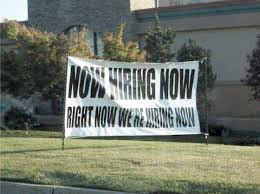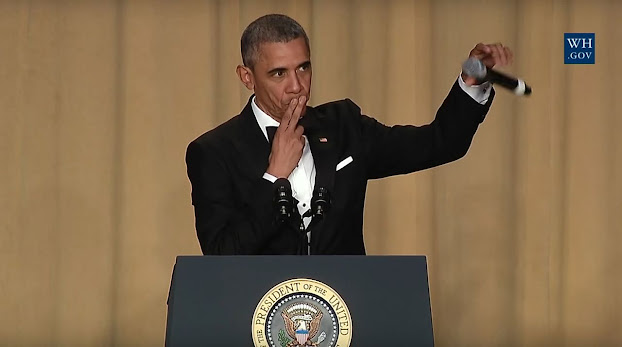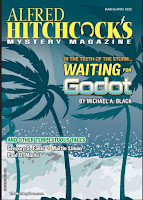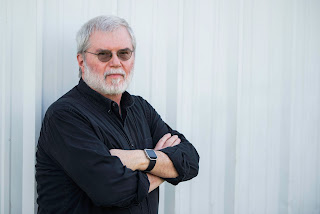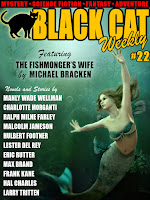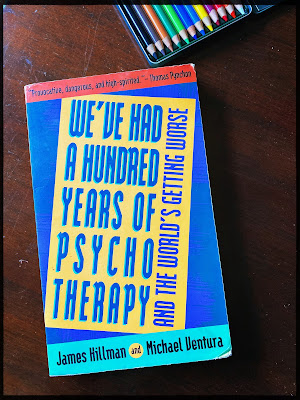OKAAAY.
How many of you mystery writers have killed someone? Raise your hand. I'll wait.
OKAAAYY.
How many of you have ever been arrested? Raise your hands. Yeah. A number of you. For committing a crime? Or for joining in a protest or some juvie joy riding? Ok. I won't pry for details. Your secret is still safe.
I'm like many of you. I've never been arrested. I've never even come close.
Oh, okay. I'll confess. I was arrested once. I was asked for my driver's license, car registration and insurance, by this blonde female officer. I handed all the paperwork over. Next thing I knew, she told me to get out of the car, walk slowly to the rear of the vehicle then place my hands on the trunk of the car.
As I'm asking what I had done. She said there was a warrant out for me. I kept telling her she'd made a mistake. That I'd done nothing wrong. She paid no attention. When we reached the back of car, she placed her handcuffs on me and clicked them tight. I immediately began cursing her out. Calling her every obscene name in the book. You never heard such a potty mouth on a lady. She didn't answer, but she loosened the cuffs one click.
She began reciting the Miranda warning as she headed me over to a police car. I'm still cussing like a sailor. She covered my head with her hand and pushed me into the back seat.
Once inside I saw a male officer step out of another police car. He started talking to the officer who had arrested me. I couldn't hear what he was saying, but it looked like he was berating her.
A couple minutes later the male officer came over and opened the door. I handed the astonished Training Officer the handcuffs. It only took me a couple of minutes to slip out of them because I have small hands and wrists.
You see, my arrest had been at the Police Academy Training facility. As an alum of the Citizen's Police Academy, we periodically help the new cadets by "role playing."
My group assignment was to be arrested, cuffed and put in the police car by the cadet. I also was supposed to cuss and yell at this female cadet. The TO wanted to know how she would react. She had remained cool and calm.
But now he repreminded her for loosening the cuffs. She was also told NOT to say anything about that to the other cadets.
I was arrested a couple more times that day. No one else left any play in the cuffs. I found out later the word about "loosening the cuffs" had indeed been passed around.
Since that time, about twenty odd years ago, I've had pleasant relationships with law enforcement. That is until two weeks ago at 5:41AM on a Monday.
I was rudely awakened by loud knocking on my front door. I'd spent Sunday evening watching 5 episodes of the new REACHER series on Amazon Prime and it was after 2 am when I took my ambien, went to bed, and zonked.
When the banging started I thought I must be dreaming. Nope, they kept knocking and then ringing my doorbell. It was real. And certainly mystifying.
Who in the world would be so rude? I wondered as I noticed the time, got up and pulled on my robe. However, I had the robe inside out. So in my short nighty and trying to snap the front of my inside out robe, I stumbed down the hall. The persistent knocking and doorbell ringing continued. I yelled "I'm coming!"
Then I hear a male voice, "POLICE!"
I was still trying to snap my wrong side out robe and thinking to myself, this had better be good.
I could see red and blue lights flashing through the half pane of glazed glass, lighting up my hallway and living room. I flipped on the porch light and saw a uniformed officer standing there.
I unlocked and opened the door, doing the best I could to hold my robe closed.
"Are you okay, ma'am?" The officer asked.
"Yes. I'm fine."
"Great," he says. "We had a call that a lady was in trouble, but we didn't have a complete address."
As he turned, I heard, "Sorry to have awakened you, ma'am."
"It's okay." I mumbled. I closed and locked the door and staggered back to bed.
I still to this day don't know what the whole deal was. I asked politely in a message on our police department FB page. The next day the answer back was to talk to the police chief in person. He wasn't available when I called the next day and I haven't had a chance to stop by the police station.
Now I know a little of how a person might feel being served a felony warrant in the wee hours of the morning.
Now plot lines are also running through my head for a story.
- A search for a murderer hiding in my back yard?
- A search discovers a young dead woman left on my side porch?
- My ex-husband's found murdered and I have no idea where I was whole the evening before the police woke me up.



